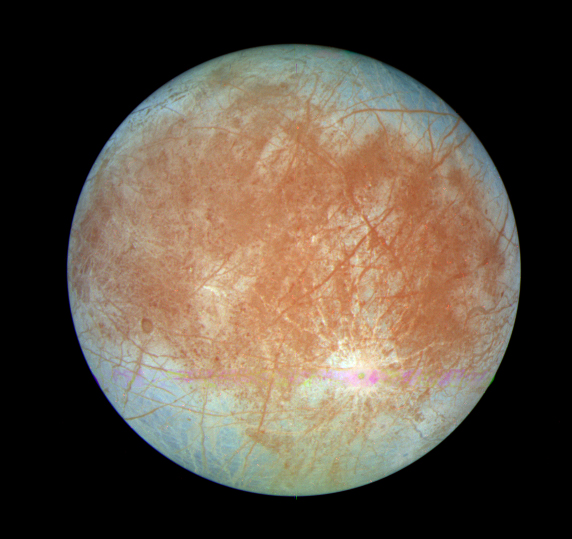
Hurricane Helene’s vicious cousin Milton has made contact with the American Southeast scarcely a week after Helene left Florida alone. In Sarasota, an oceanside city on the Gulf of Mexico, officials have advised citizens to evacuate immediately, and if they choose to stay, to write the cell number of their next of kin on their arm in permanent marker as a last resort of identification. Dubbed as the “largest evacuation seen since 2017’s Hurricane Irma,” Milton has destroyed cities, homes, and lives in just a few days. Those alive and willing to tell the tale report water up to their hips, unidentified bodies as populous as palm trees, rotting furniture up and down town streets, and even dogs chained to fences, exhibiting the true colors people show in the face of adversity. As if Florida was not already America’s most arguably absurd state, Hurricane Milton has swooped in to add a little despair to the equation. Even better yet, the Sunshine State isn’t the only thing the storm has made a mess of.
What is to be a possibly groundbreaking space exploration has been postponed due to the cruel and unusual Hurricane Milton. The Europa Clipper, a NASA space probe, is scheduled to take off for Jupiter’s moon Europa when Hurricane Milton decides it is safe. Although the postponement of the Clipper’s takeoff is not expected to be long from the original window, disappointment is widespread, for the mission was highly anticipated. No surprise, since the purpose of the exploration is to discover areas of the moon that have the capacity to host alien life.
The Europa Clipper holds the title of the biggest exploration spacecraft NASA has ever launched in outer space, weighing in at 6,000 kilograms and measuring about as wide as a basketball court, though no astronauts will be accompanying the vessel on its mission. No physical contact will be made with the icy moon Europa, but the hope is to find something there that is worth going back for, like alien life. For years, the search for life on different planets has been focused on our neighbor, Mars, because it is technically a habitable zone in the solar system. Though habitable in terms of temperature, the other conditions on Mars are not quite so attractive. Its lack of atmosphere and radiation overflow do not display the potential of supporting life for very long. Despite this, Mars is close and easy to send missions to, unlike Saturn and Jupiter, who are unimaginable distances from Earth and do not possess the qualities of supporting life on their own. However, their moons do. Saturn’s moons, Titan and Enceladus, are confirmed to have vast underground oceans, also known as liquid water, the backbone of every species’ survival. Europa is suspected to be the same, while also possessing a smooth surface and a magnetic field, a distinct characteristic of Earth’s ideal position in supporting life. Although these traits of Europa are not all confirmed and are heavily suggested, all signs point to Europa having the capability of supporting at least some form of life. That is what the mission of the Europa Clipper aims to uncover, and it will, just so long as Hurricane Milton relinquishes Florida back to us, no sooner than October 14th, 2024.
Like Titus and Enceladus, high levels of radiation plague Europa at its surface, so the chance for alien life to be residing in plain sight is very slim. The Europa Clipper aims to find areas of the moon where life could be dwelling beneath the icy shaft. Several instruments, such as a thermal imaging system and tools for mapping the moon, are the key factors in successfully articulating this search for alien life. All signs point to a fruitful and informative mission, but perhaps also to the arrogant nature of our planet’s inhabitants.
The dictionary definition of an alien is “a foreigner, especially one who is not a naturalized citizen of the country where they are living,” which explains why the term is used so broadly. From an immigrant in a foreign country to a little green man with bug eyes and a god-complex to an ostracized teenager, an alien can be just about anything or anyone. The word “alien” means so many things to so many people that it can be hard to understand just what NASA is trying to find on Europa. When extraterrestrial is used, many people don’t understand how some of the world’s best and brightest scientists could even fathom the presence of a real-life E.T. in our universe.
“I just can’t imagine those scary, crazy beings being a part of my world,” says Chesterton High School freshman Macey Mauke, a cynic when it comes to the possibility of little green men with bug eyes.
Disbelief is understandable, since it is rather presumptuous to assume that the same tools used to detect life on Earth will be useful in detecting life on Europa, lives which aren’t even fathomable from what is known now. There are so many variables that are impossible to eliminate, perhaps a means of protection from something humans shouldn’t stick their noses’ into. Despite the compelling evidence that shows how likely it is for something to be living on Europa, proving the existence of that certain something is much easier said than done.
It is hard to believe that other life in the universe will be discovered so soon after the development of the knowledge and technology fueling this mission, in our solar system of all places. Not to mention all of the variables that apply to the concept of aliens. Still, with all the evidence proving the possibility of life-sustaining attributes, it would be a shame not to search for neighbors on Europa, or at least find a confirmed goldilocks zone in the solar system. Given how life on Earth and the planet itself have been at odds with each other lately, it sure would be nice to have a backup habitat for when our pollution kills us or when a certain Hurricane Finale swallows us for good. Surely all the Floridians sitting in Hurricane Milton right now would take Europa over Sarasota in a heartbeat.








